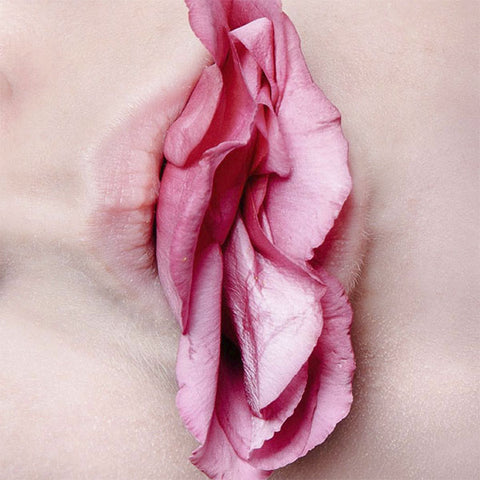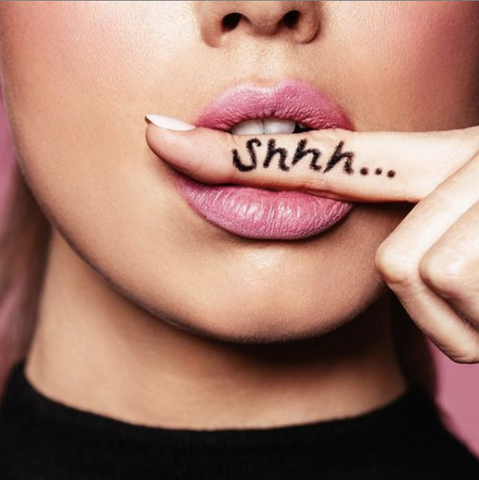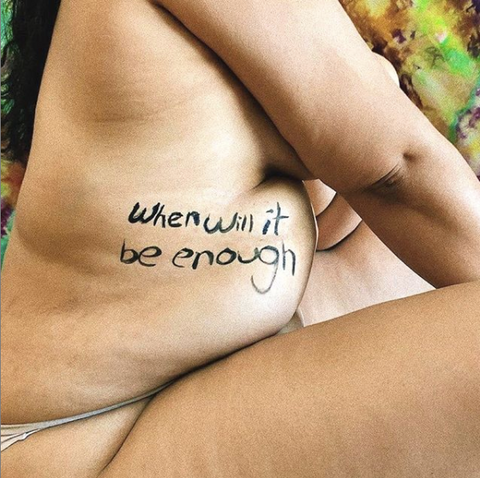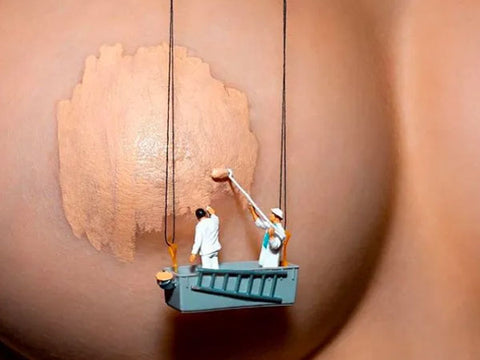Sexism Squared
More than ten years ago, I wrote my first piece on a vibrator (The Rabbit). It was 2011, and my boyfriend at the time - who was also a regular reader of the blog - got pissed. “What are you trying to say?”, he asked. “What are you trying to prove?”

In all seriousness, the answer was very simple: I wanted to talk about sexuality and I was free to do so, free to choose the tone and the words that I wanted. I didn’t have an Editor or Director who could call the shots, or approve and reject my work. No one could impose modesty on me that, quite frankly, I didn’t even have to begin with.
One time, my mother asked me why I was doing it - why I was talking about sex toys, erotic misadventures and pornography - rather than something else. She told me that I was good, that I didn’t need to write those things, and that I could have written more “serious” pieces if I wanted. In response, I told her that what I was doing was making a difference both politically and socially. (I didn’t mention that I knew more about dicks than the circular economy, taxation inequality, and financial policy).
It is worth mentioning, though, that it wasn’t common to speak freely about autoeroticism, sexual well-being, pleasure, the body...especially in Italy, and especially for women. The word, “vagina”, was still embarrassing for most, and even the most progressive speakers would tell me, “Ah yes, I’ve heard of you. You’re the one from the monologues!”. No, actually. I’m not Eve Ensler, but thanks anyway.

The fact of the matter is, over the years I’ve gotten away with writing a lot about cunnilingus and fellatio, sodomy and carnal sins, and I’ve moderated the conversations and debates that arose from those very articles. In particular, I even wrote about acceptance, awareness, communication between bodies, human anatomy, the G-spot, and the clitoris. When I met younger girls years later, they thanked me for having been their sexual education. I wish that my mother could have been there to hear that and understand what I had meant.
Do you get it now, Mom? Remember when I was telling you how writing about sexuality, particularly women’s sexuality, was useful - and even necessary?
Not that I had ever given it much thought, but I had a very distinct feeling: there were too many lies being told about my body throughout my life - an infinite number of depressing fake news stories and sometimes, just plain nonsense: how I would have bled out the entire Red Sea of Moses when losing my virginity, and that I would have felt pain and not pleasure, or that I would have to pretend to orgasm rather than try to achieve one, and in any case I should have pursued a vaginal orgasm, which is the “right orgasm” for women, rather than the clitoral one.

On the other hand, the clitoris was an unidentified object, at best explained as “a small penis”, so mysterious, that it was normal and completely expected that men wouldn’t know how to find it. The G-spot, rather, didn’t even exist...well, maybe it did, who knows. It’s a little bit like squirting, which is basically just urine, and in any case, only happens in porn films.
Up to my generation, women rarely masturbated and generally waited for a particularly wise lover to shed light on the most hidden mysteries of their own bodies. I’m sure you understand the frustration and awkwardness.
I, for one, have always been quite rebellious (as well as a longtime fan of Sex & The City), and bought my first sex toy in Amsterdam at 20 years old. This is how I discovered how wonderful it is to masturbate, that achieving one’s own pleasure is a fundamental step to understanding oneself! And that pleasure provides you with charm and seduction. I also discovered that pleasure liberates you and makes you powerful, engaging, and a master of your own sexuality.
This news was so intoxicating that I decided to proclaim it to all the women who had been left in the dark this whole time.

All jokes aside, this problem of misinformation, sexual ignorance, and lack of education, with all of its social and psychological ramifications and consequences, is only seemingly minor. This is not so much because it concerns us when it comes to health, demographics, and culturally, but also because for us women, it’s been a primary, historically central theme: for thousands of years, our body has been up for debate. Without sounding like too much of a veterofeminist, this debate has also been a struggle in political, public, and aesthetic arenas.
Even so, female sexuality has been fiercely punished, mutilated, repressed, despised, and wrapped in murky mists of uncertainty and phallic paranoia in innumerable ways for centuries.
Women’s sexual freedom is used as a way to measure how far society has declined. Female hypergamy is hailed as the plague that destroyed the traditional family (along with the valuable contribution of lobbying for gay rights, of course). How can one believe that there is no need to talk about these topics? Or to claim knowledge and authority on our body, our pleasure, and our psychophysical health?
Take advertisements, for example. We all know that Facebook has become a sort of vile cesspool of sorts. Even so, I cannot advertise on the platform. My content, which is primarily informative in nature, is not in line with the Community Guidelines. Allow me to clarify one thing: this is not only my personal struggle. Anyone, anywhere, who wants to talk about female sexuality, intimate well-being, or products that can enhance sexual pleasure, cannot do so. That isn’t to say that they can’t; they can, but they cannot promote themselves or advertise themselves in doing so.

The more you think about it, the sexism and irony is obvious. For decades, any sort of hardware shop, hotel, food chain, perfume company, fashion or beauty brand, automobile company, watch manufacturer, silicone brand, line of cleaning fabrics, local and multinational companies have used female nudity to sponsor their products and services. Women can be exploited through advertising, but they cannot use advertising as an emancipation tool. Reading this in the Western hemisphere in 2019 is ridiculous. It’s heightened sexism - or rather, sexism squared.
Of course, the complicated and instrumental relationship between marketing and femininity is nothing new. However, these days it’s actually possible to do something in the hopes of changing the situation. For instance, pureeros, together with Dame and other brands, is a partner of “Approved Not Approved”, a campaign against sexism in advertising.
________________________________________________________________
You may also like: Period-Proof Underwear: Advance Lingerie with Cocoro
________________________________________________________________
You might be asking, “But what does any of this have to do with liberation?” Everything. It matters because awareness is culture, culture is freedom, and freedom is power. And it doesn’t mean (like we’ve been made to believe) that our beloved vagina is a commodity to be used in exchange for favours (what is commonly referred to as “the power of pussy”).
It matters because certain, “friendly” opposition to these arguments demonstrate just one thing: evidently for some, the idea of a woman taking ownership of her brain, her uterus, and her pussy is still repugnant. Unbecoming. Inappropriate. Scary.
Except that we, who are directly affected, do not agree whatsoever. So let’s put a stop to this. Now.
By: Memorie di una Vagina
Credits: Pic1: Daantjebons - Pic2: Mehrandjojan Pic4:Mahaliafromaustralia - Pic5: Sunnyturner

